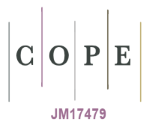Biodegradable plastic production by Bacillus spp. isolated from agricultural wastes and genetic analysis of PHA synthesis
DOI:
https://doi.org/10.23851/mjs.v29i1.115Keywords:
Key words, Bacillus spp., PHA production, FTIR, Characterization, synthase genes.Abstract
Abstract
Polyhydroxyalkanoates (PHAs) are resources that hoard by a variety of microorganisms as nutrient source. It is environmentally recyclable biopolymer, and totally corrupted biologically to simple molecules.
A total of 38 isolates from agricultural wastes, 9 isolates exhibited optimistic outcome (dark blue particles) for PHA accumulation when stain by Sudan black B. Maximum bacterial growth was achieved at temperature 35°C, PH 7, (48-72) hr incubation and 0.25% concentration of NaCl. Chosen isolate (NE1MOK) recognized as Bacillus subtilis when diagnosed by traditional and molecular methods by amplification 16s rRNA gene. Bacillus subitilis had ability to accumulate 0.26 g/l (40.625 %) of PHA, and characterized by Fourier transforms infrared (FTIR) analysis which exhibited functional groups of PHA as (C-O, C=O, CH2, CH3, C-O-C, C-H and terminal OH). PCR results for amplification of synthase genes showed positive results in all isolates and length of amplicons was 505 bp. The aim of this study was to use agricultural wastes as a source to select bacterial isolates which produce PHAs, and determined the optimal conditions of bacterial growth, then analyze the genes responsible of its formation.
Downloads
Downloads
Key Dates
Published
Issue
Section
License
(Starting May 5, 2024) Authors retain copyright and grant the journal right of first publication with the work simultaneously licensed under a Creative Commons Attribution (CC-BY) 4.0 License that allows others to share the work with an acknowledgement of the work’s authorship and initial publication in this journal.






















